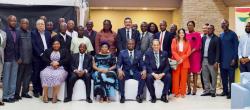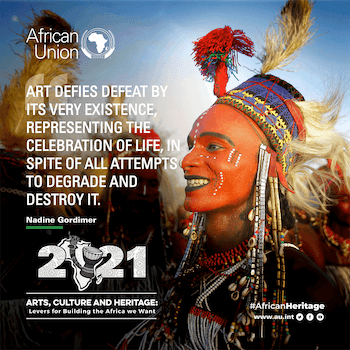The African Games, an epitome of African Unity & Sporting Greatness
Over the past half a century, the African Games have evolved into a multisport event with an ever-growing global audience. From its first edition in 1965 which involved about 2500 athletes from 29 nations to nowadays, the competition hitherto organized as an avenue to bring together newly independent African countries and foster African unity. The Games have become an exciting contest regrouping Africa’s elite talents and budding sensations with 4000 athletes from 55 nations to compete this year in Accra, Ghana.
The evolution of the African Games has been significant with their reputation as a melting pot of cultures undeniable, their standing as a purveyor of elite athletes affirmed and its role in establishing the continent as a powerhouse on the global scene glaring. The Games have also become a platform to celebrate the diverse cultures, talents, and skills of African athletes. A comprehension of the competitions tremendous growth is rooted in an understanding of African civilizations and cultures.
The African Games, an epitome of African Unity
In several African civilizations, sport was an inherent part of their cultures as its stretch spread across the political and socio-cultural spheres of daily lives. In several African civilizations, some conflicts were settled over archery, horse racing or wrestling contests while socio-culturally, sports had a significant dimension. The installation of kings in some civilizations were preceded by sports events while in some communities, spiritual rites were accompanied by wrestling fights before the farming season began. Sport as far back as then was already a catalyst of unity within communities and was key in solidifying links between these societies.
The importance of sports took a major twist in the fight for independence where several nationalist movements across the continent either used football, boxing or wrestling contests as a platform to spread nationalist ideologies and calls for independence. With this tactic having worked significantly, African leaders sought for a strategy to further bring the newly independent countries together via sports.
The idea garnered steam especially as several French-speaking countries on the continent were already competing in the “Community Games” as well as the “Friendship Games” which also saw some English-speaking countries feature. In April 1963, African Ministers of Sports meeting in Dakar resolved to organize a similar competition solely for African nations dubbed the “All-African Games” in Brazzaville, Congo, in 1965.
The formation of the Supreme Council for Sports in Africa (SCSA) in 1966 endowed the Games with more importance. The creation of the African Union Sports Council (AUSC) in 2016 translates to the African Union’s desire for a high-performance competition. Every four years, athletes, and supporters from all over the continent will meet in a country, fraternizing and constructing for themselves new ideas about other countries. During competitions, fans from the whole continent often discovered the similarities between their nations with the utmost quest for victory often relegated to the rear in favor of cultural exchanges between communities further highlighting the continent’s luxuriant cultural heritage. That athletes and the different delegations often lodge in the Games’ village paved the way for socio-cultural and economic exchange, fostering strong ties between them and papering whatever cracks or misconceptions participants may have of other communities. Close to 60 years on, the African Games have become a lightning rod for solidarity and a beacon of African unity.
A catalyst for Sporting Greatness
The prominence of the African Games accrued more than half a century is also principally hinged on the sporting excellence of athletes competing in the continental tournament. The competitivity of the sports jamboree has made it a must watch for sports afficionados. Many athletes, especially in track and field events, have arrived at the competition grounds almost unknown and emerged from there as champions with stellar reputations, going on to win world and Olympic medals.
Cameroonian track and field legend Françoise Mbango won her very first gold medal in triple jump at an international competition at the 1999 All African Games in Johannesburg, going on to win two gold medals at the 2004 and 2008 Olympics, establishing an Olympic record. Like her, South African swimmer Chad Le Clos at 19 years competed at the 2011 African Games in Maputo, Mozambique, winning five gold medals in the event. The year after, he secured a gold medal in the 200-meter butterfly at the 2012 London Olympics going on to have an illustrious career picking up 16 gold medals in the World Championships.
The competitiveness of the African Games has made it a perfection ground for African sportswomen and men ahead of major competitions. When the Cameroon’s men’s football team won gold at the 1999 All Africa Games and translated their fine fettle unto the Olympics, winning gold in the discipline, many were quick to point to the cohesion the side had built playing together in Johannesburg. If performance at the African Games is foretelling of success in other major competitions, then many participants will be rubbing their hands gleefully as the 2024 Olympics will be staged just four months after the African Games. A thrilling performance in the event will boost confidence and provide a basis to improve ahead of the Paris event.
The evolvement of sports science and technology has heightened the probability of high-performance displays in Accra from March 8 onwards. That up to seven of the 23 sport codes in action will serve as Olympic qualifying tournaments adds more excitement to the continent’s pinnacle multi-sport bonanza. Athletes always wax lyrical about competing in the African Games reminiscing of the adrenaline rush and two weeks to the event, they’ll have to channel any iota of mental and physical strength they possess to hit the firmament of their discipline and ink their names in the annal of the African Games.










